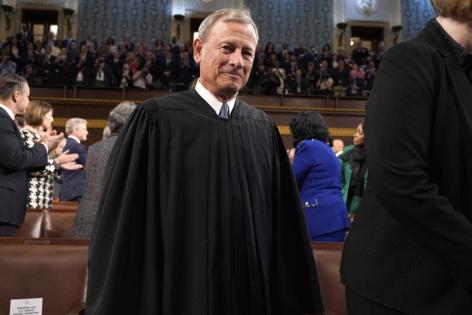Supreme Court ruling could strain Minnesota's providers of gender-affirming care for minors
Published in Health & Fitness
A Supreme Court ruling this week upholding a Tennessee law that bans many gender-affirming treatments for minors could put added strain on Minnesota providers of care.
Minnesota’s protections for transgender youth remain protected under state law.
Rep. Leigh Finke, DFL-St. Paul, the first transgender person elected to the Minnesota Legislature, said the ruling will likely spark fear and panic among transgender and nonbinary teenagers and their families in states like Tennessee, who may now be searching for gender-affirming care options across the country.
“They will look for answers, and one of those answers is Minnesota,” she said. “I’m sure that there will be additional strain on our system.”
Minnesota became a legal refuge for transgender people in 2023, when lawmakers passed a measure introduced by Finke that protects both patients and providers of gender-affirming care. Since then, families from more than 20 states have moved to Minnesota to access that care.
The Supreme Court’s decision does not ban gender-affirming care nationally; it ruled that Tennessee’s law does not violate the 14th Amendment.
Chief Justice John Roberts, writing the majority opinion, said the Supreme Court was not weighing in on whether gender-affirming care is good or bad. Instead, it was only deciding whether Tennessee’s ban on such care for minors violates the Constitution’s equal protection clause.
Roberts wrote that it would leave the broader policy questions to lawmakers.
The vote was 6 to 3, with the court’s three liberal members in dissent, and comes amid the Trump administration’s aggressive stance against transgender rights.
Trump, who campaigned on the topic, said during his inaugural speech that the federal government would only recognize two genders, male and female.
It also comes during a national debate on whether parents should be able to determine gender-affirming care for their children and how transgender athletes should participate in high school and college sports.
The Tennessee law, enacted in 2023, prohibits medical providers from prescribing puberty-delaying medication, offering hormone therapy or performing surgery to treat gender dysphoria.
Nearly 30 states across the country have laws that restrict access to gender-affirming care for youth.
LGBTQ and gender advocates across Minnesota condemned the ruling, warning it opens the door to broader federal rollbacks of transgender rights.
“Today’s ruling opens the door to broader federal attacks, not only on trans health care, but on the right of all people to make personal medical decisions without political interference,” Brittany Stewart, senior staff attorney at Minnesota-based nonprofit gender equity advocacy organization Gender Justice, said in a statement.
Kat Rohn, executive director of Minnesota LGBTQ advocacy organization OutFront Minnesota, said the ruling leaves families navigating a “patchwork of bans that deny transgender youth and their families full access to the care they need.”
Finke said she talked with several transgender Minnesotans on Wednesday after the Supreme Court, including at the vigil honoring Rep. Melissa Hortman and her husband, Mark.
“They were mourning the loss of a great leader, a champion of our community, even as we are mourning the loss of our rights and the rights of our family in Tennessee and elsewhere,” Finke said.
When children and families told her that they are scared, Finke said she told them: “The fight is where we find our meaning. We’ll link our arms together with everyone who will join us.”
A Children’s Minnesota spokesperson said the health system does not anticipate any change in services or patient volumes right now because of the Supreme Court ruling, but otherwise declined to make anyone available from its transgender health clinic.
The PFund Foundation, a Minneapolis-based LGBTQ nonprofit, supports transgender-serving organizations across Minnesota, Iowa, North Dakota, South Dakota and Wisconsin.
Executive Director Aaron Zimmerman said families from surrounding states are already seeking care in Minnesota — a trend he expects to grow after the Supreme Court’s decision.
“We were just in South Dakota,” Zimmerman said. “We were talking to some of the LGBTQ-serving organizations about the fact that their clients are coming here and needing to access care.”
This year, the Legislature awarded PFund $1 million to support training and education for providers offering gender-affirming care and help them expand services.
Of that, $200,000 was distributed in February. The remaining $800,000 will be granted to hospitals and clinics in July to help expand the capacity of their gender-affirming care.
However, he worries that further federal regulations could jeopardize grants.
The Supreme Court’s decision came just one day after the Trump administration said it would shut down a national suicide prevention hotline tailored for LGBTQ youth.
The Substance Abuse and Mental Health Services Administration announced in a press release that the 988 Suicide & Crisis Lifeline will end its LGBTQ youth-specific services on July 17.
“I can think of nothing more cruel,” Finke said. “It is a signal that there is no acceptable support for queer people under the Trump administration.”
Sen. Scott Dibble, DFL-Minneapolis, also condemned the Supreme Court’s decision, and the hotline shutdown.
“Coupled with the news that suicide prevention services will no longer be provided, these decisions will only lead to unnecessary suffering for transgender youth and the wider LGBTQ+ community and continues the demonization and attack of our community,” Dibble, who is openly gay, said in a statement.
_____
Includes reporting by Star Tribune writer Jeremy Olson.
_____
©2025 The Minnesota Star Tribune. Visit startribune.com. Distributed by Tribune Content Agency, LLC










Comments